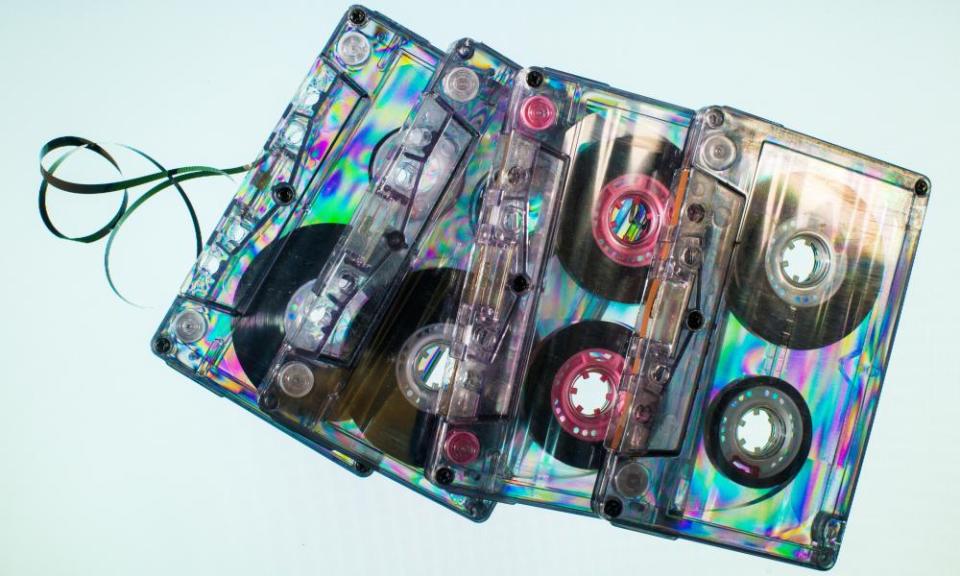Germaine Greer’s attack on Meghan Markle – so predictable, so old hat, so wrong

Never mind as a renowned feminist, let alone a controversialist, hasn’t Germaine Greer rather lowered herself taking a cheap shot at Meghan Markle? Isn’t that just about the easiest, most obvious thing anyone could do?
Last year, Greer said of Markle: “I hope in a way that she’ll bolt, but maybe she’ll take Harry with her.” Top marks for prescience. This time, in an interview with Australia’s 60 Minutes, Greer spoke about the couple’s “awful” “showbiz” wedding and how they may “slide into complete obscurity”. Then, Greer went low, saying that Markle had better be in love: “If she’s been faking it all this time, oh boy, what misery. How many orgasms will it take? How many fake groans will get her through this?” Well, I wouldn’t know, though maybe no more numerous than the publicity orgasms Greer presumably had when her vile and crude comments went all over the world.
Orgasms, fake groans… Who even has the energy to unpack all the tired, reductive woman-on-woman nastiness in that? This is the author of The Female Eunuch pondering whether a woman is a conniving fame-whore, who views her husband, the father of her child, as a lucrative “john”. And yet, far from being shocking, what’s striking is how predictable, even monotonous, all this is. Who isn’t attacking Meghan these days?
It’s an easy score, an instant headline, as supporting Meghan Markle, or indeed ignoring her, never could be
Whether resigning from royalty, sacking staff or doing an alleged million-dollar speaking gig for JP Morgan, Meghan and Harry remain the top undisputed House of Windsor media targets, which is no mean achievement when Prince Andrew is in the mix. Markle has been vilified on myriad grounds, including race, however much it’s denied. The line that she’s a money-grabber is particularly hypocritical – isn’t “attacking Meghan Markle” now a bona fide industry? It’s probably an official part of Greer’s PR schedule. “Shower. Breakfast. Car to television studio. Attack Meghan Markle. Lunch with publishers…”
The odd thing is that the heat is almost completely one-sided. Sometimes, Meghan-bashers adopt a quasi-crusading stance of waging war against knee-jerk sycophancy, of not being “taken in”. In truth, there are no heaving crowds of Meghan-faithful who need putting straight, no delusional masses claiming her as their showbiz Eva Perón. Those who like Meghan, who feel sympathy for her, who wouldn’t feel personally slighted if these strangers made a go of it as a regular celebrity couple, don’t make anywhere near the amount of fuss as those who hate her. These days especially, there is no mawkish reverence requiring a rigorous counterbalance. Increasingly, Meghan-haters are just screaming among themselves.
Why would they bother? Well, it’s an easy score, an instant headline, as supporting her never could be. The trouble is that it’s been open season on Meghan for so long, even vicious attacks have become weirdly banal and mainstream. If Greer still fancies her chances as the feminist shock-jock du jour, she needs to up her game.
They’re a blast from the past, but mixtapes still rock

Proust, you can keep your madeleines. For some of us, it’s old-school C90 musical mixtapes that prompt memories.
Stella Wedell found a mixtape she had lost while holidaying in Spain 25 years ago featured in an exhibition by Mandy Barker, who makes art out of marine debris.
While some used this story to make environmental points about how long plastic lasts in the sea, my first thought was: “What’s on the tape?” Apparently a mix that includes Pet Shop Boys, Shaggy and Bob Marley – good job, Stella, nicely eclectic! And what a lovely reminder about mixtapes.
Back in the day, a mixtape was your actual cultural soul encased in a C90. It had to be done properly. Anguished selections. Songs in exactly the right order (mistakes lead to ambient disaster). Handwritten labels (assorted colours optional). We knew the drill.
You could make mixtapes for yourself or they could be made for you. In my day, if someone sweated over making a mixtape for you, it was a declaration of eternal love, which you either accepted or spurned (“This is not my favourite Psychedelic Furs track – you don’t know me at all!”)
Does all this angst and romance still happen with Spotify? At least it wouldn’t end up in the ocean, but I doubt it could be as evocative.
Stars moralising over causes is preferable to fawning luvvies

Wasn’t the Oscars ceremony always boring, even before the trend for virtue signalling?
Audience figures for the recent event fell to an all-time low, down to roughly 23.6 million. Although viewing habits are changing, the 2019 figures were up (29.5m), so that’s quite a nosedive. Some are blaming the fact that, in common with other awards ceremonies, the Oscars has become a virtue-signalling Olympics. This year, Joaquin Phoenix accepted his best actor Oscar for Joker, talking about everything from inequality to animal rights. Meanwhile, Natalie Portman wore a cape adorned with the names of non-nominated female directors, which was criticised by Rose McGowan as “the kind of protest that gets rave reviews from the mainstream media for its bravery... Brave? Not by a long shot.” (Portman responded by agreeing.)
Is virtue signalling really the worst thing that can happen at an awards ceremony? I laughed as hard as anyone when Ricky Gervais roasted stars at the Golden Globes (“You’re in no position to lecture the public… Most of you spent less time in school than Greta Thunberg”), but that was because it was funny. Otherwise, is it really so unendurable if celebrities use their global platform for something other than self-glorification? Does someone like Portman have to be on the very frontline of activism or she can shove her heartfelt support?
What otherwise happens at awards ceremonies is even duller – a bunch of people fawning over each other, sobbing into microphones about their creative “journeys” and indulging in excruciating luvvie backslapping. Personally, I’d rather listen to Phoenix, a lifelong vegan, flag up animal rights than sit through that. If you’re not part of an industry, it’s highly likely their awards ceremonies, even the Oscars, will be boring. As for virtue signalling, sure, it can be irritating, but perhaps virtue signalling about your anti-virtue signalling is just as bad.
• Barbara Ellen is an Observer columnist

 Yahoo News
Yahoo News 
